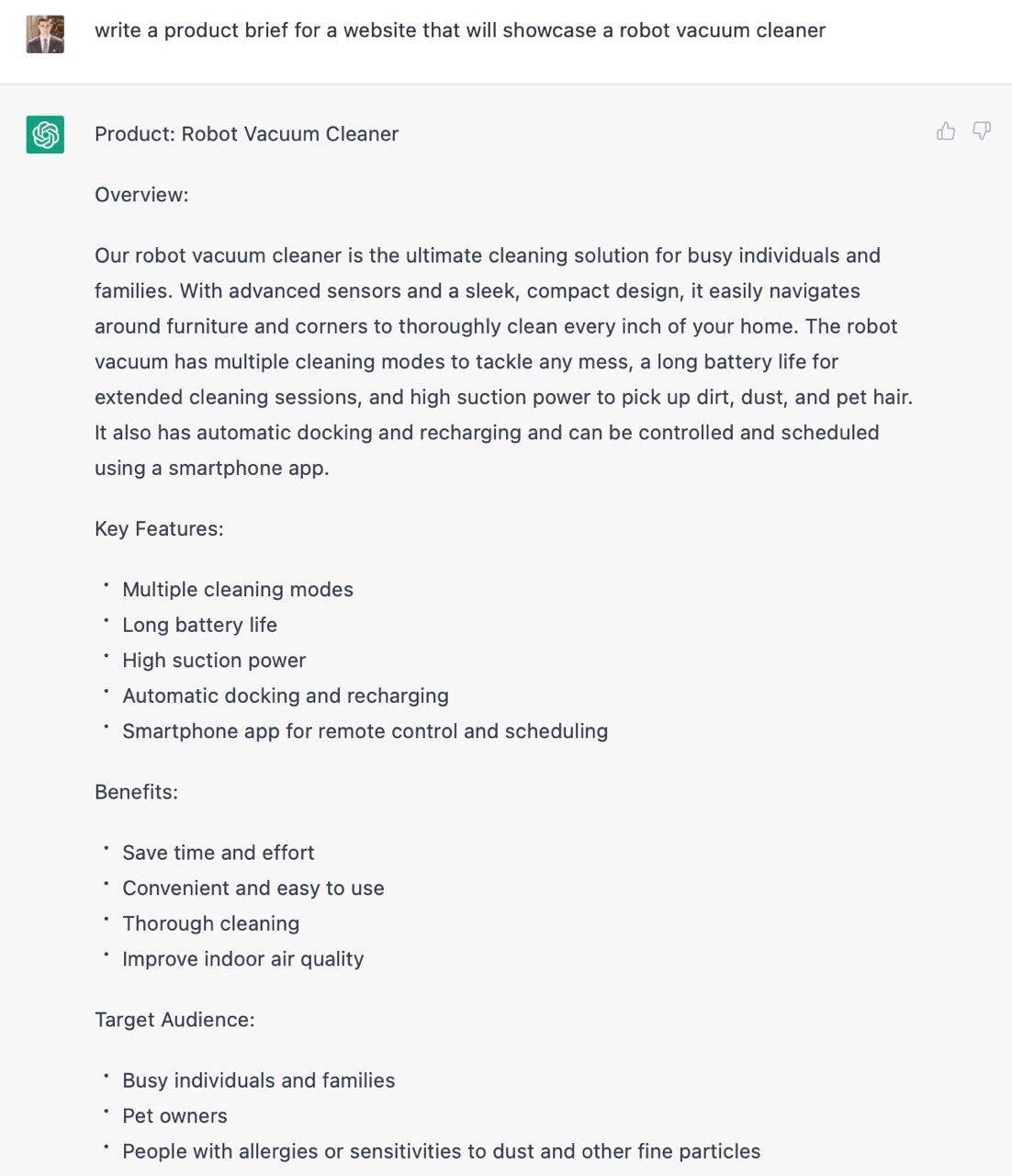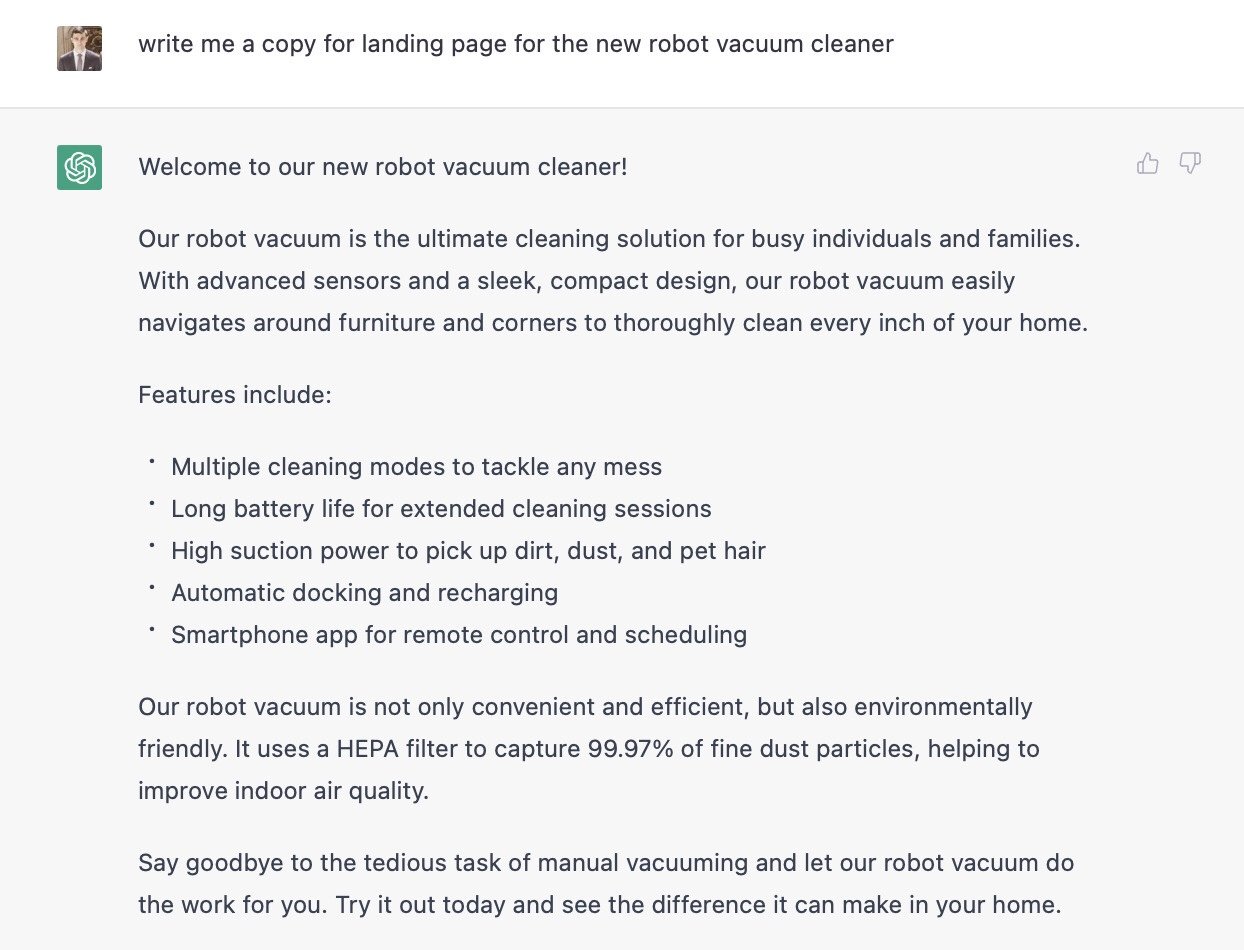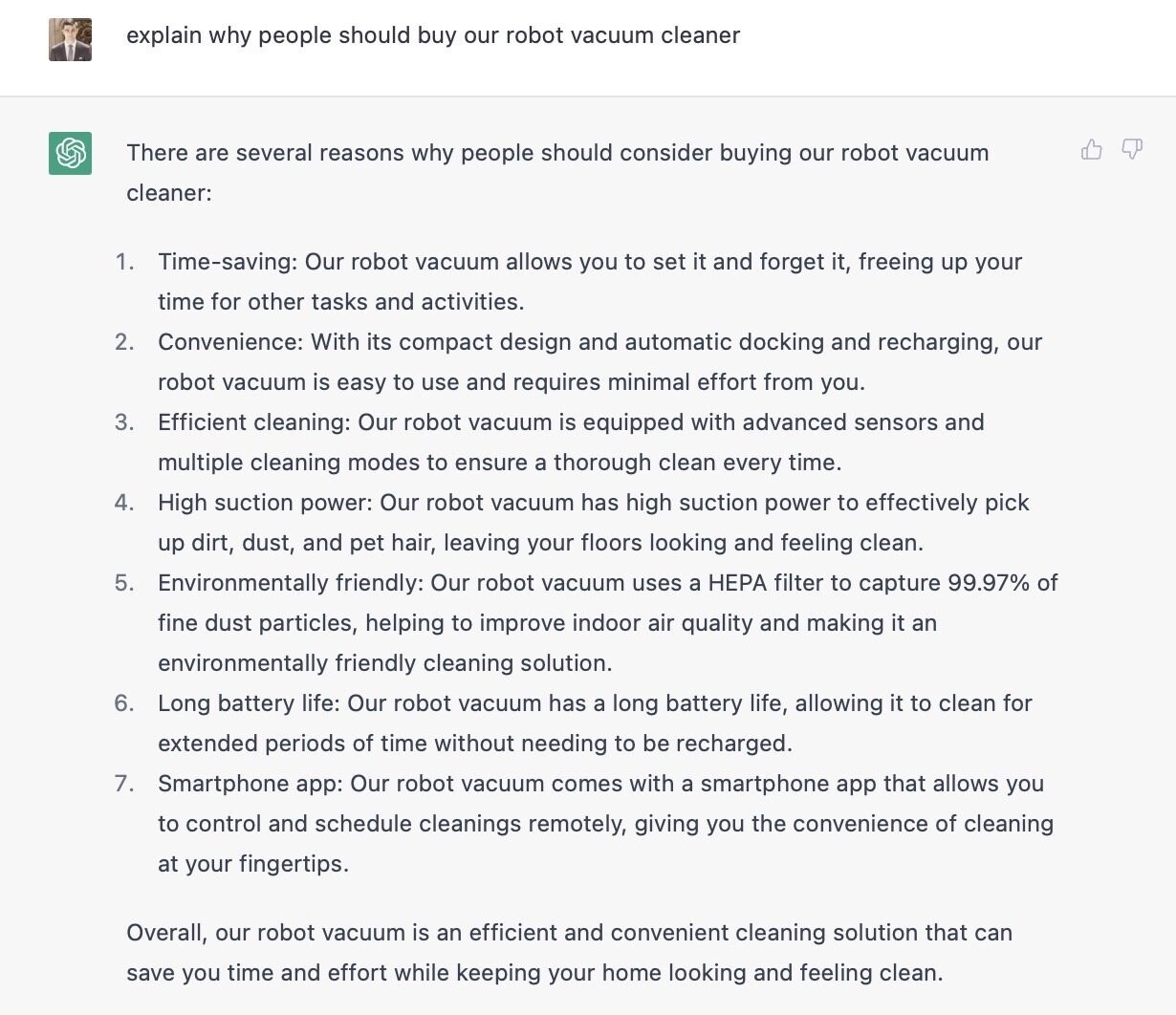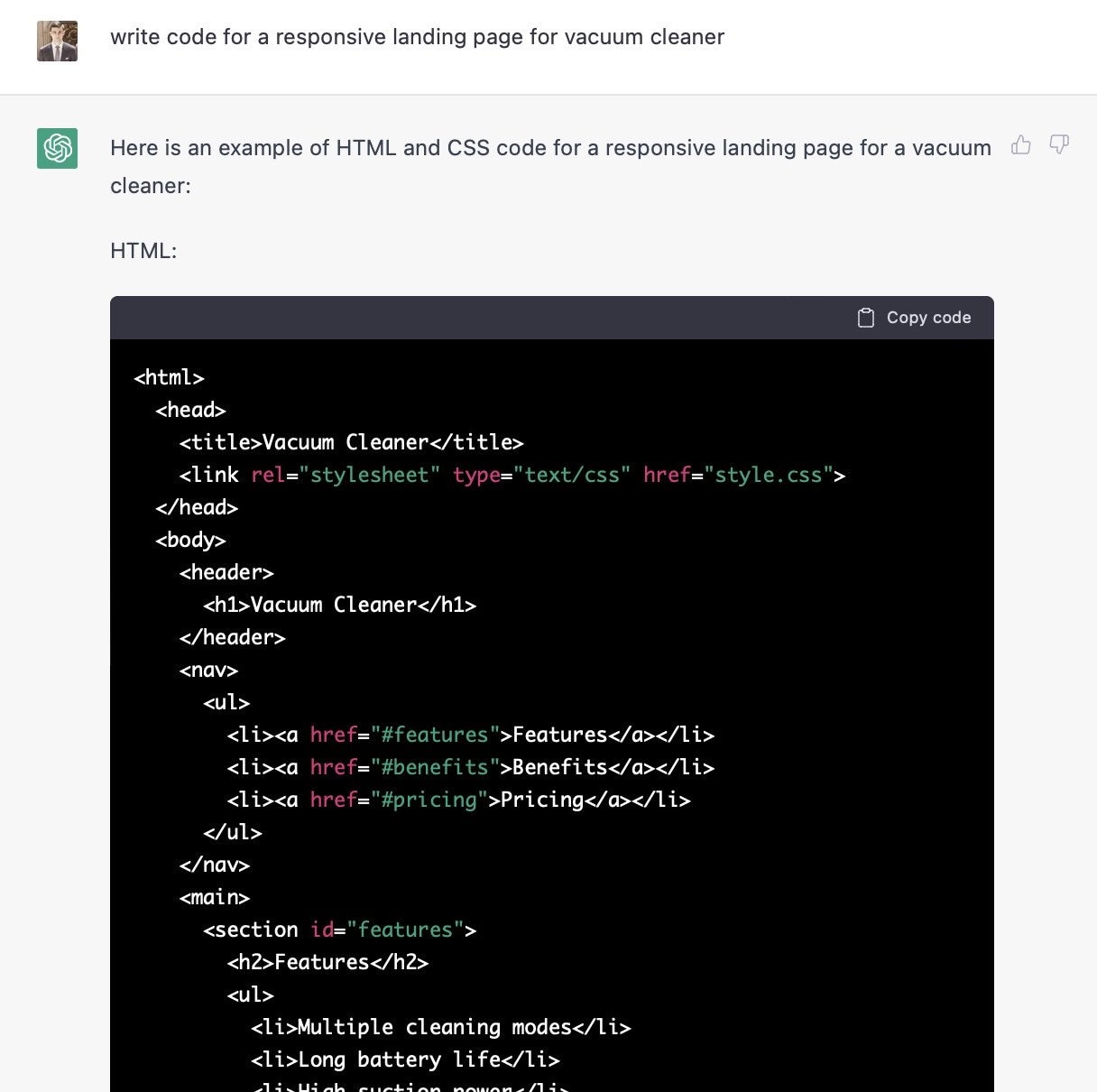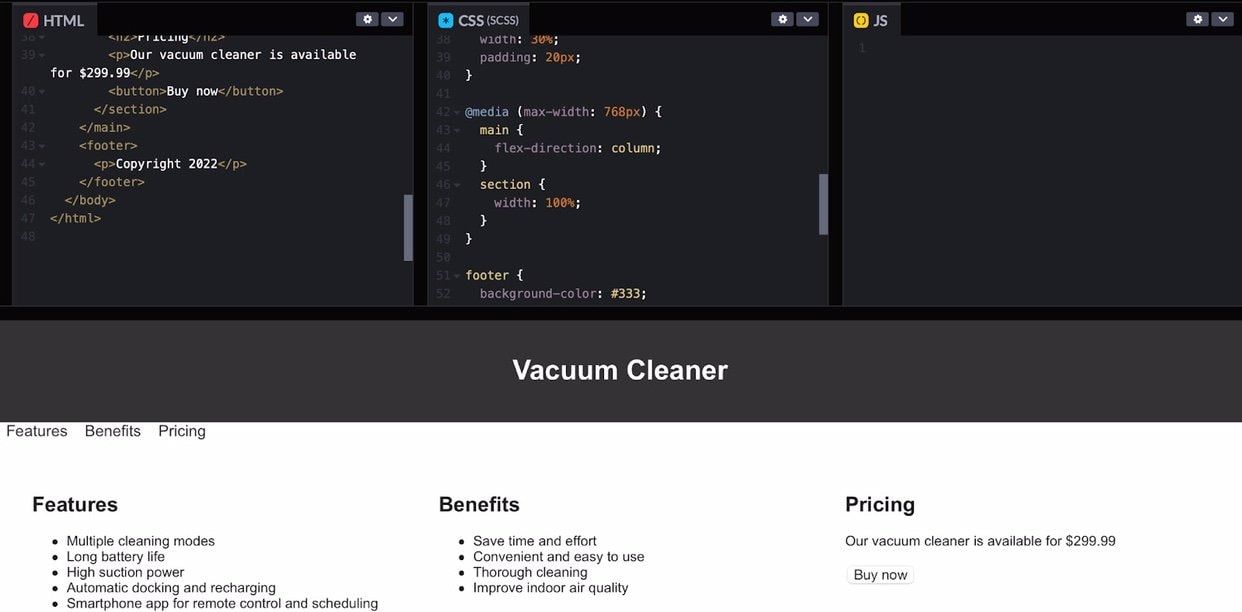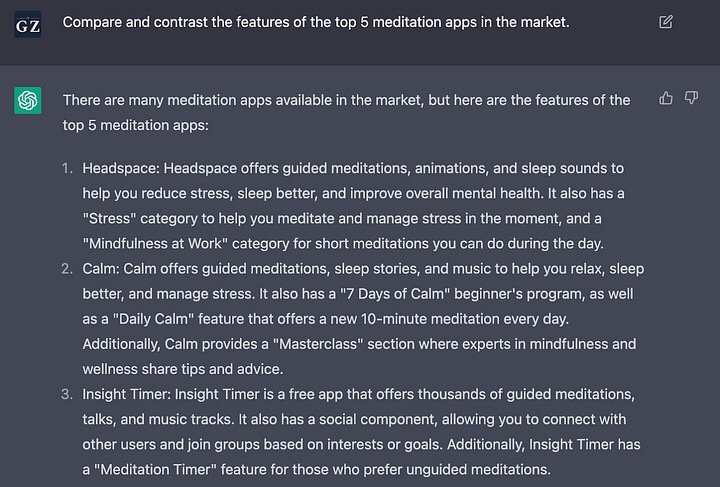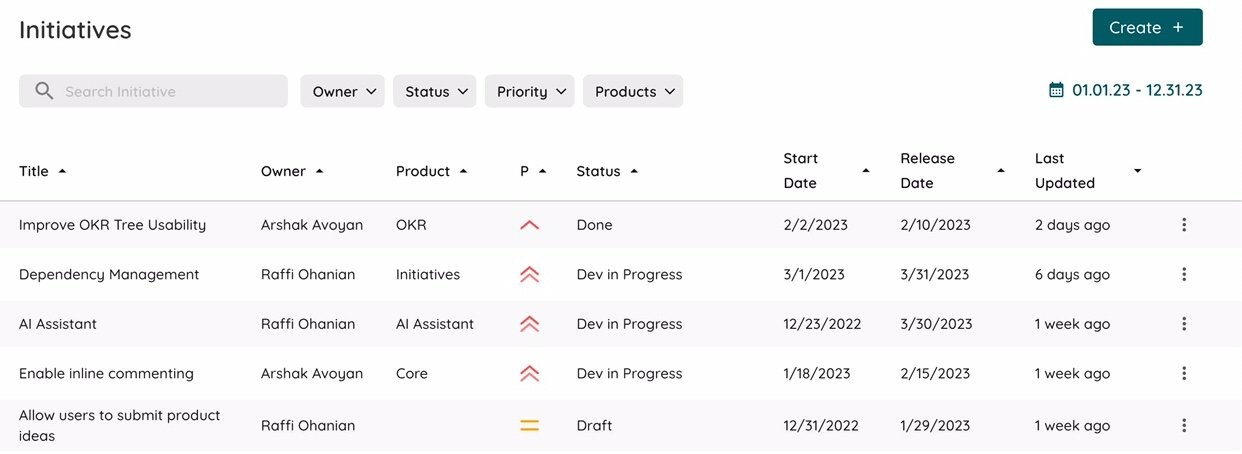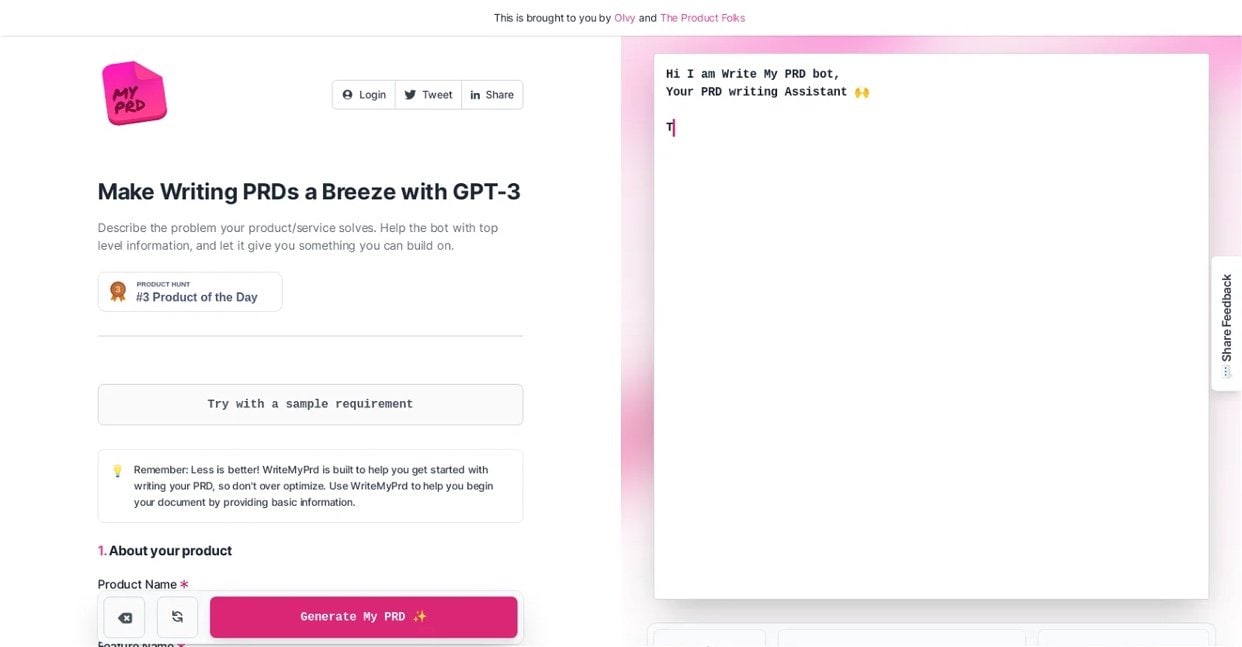How To Write a Product Requirements Document (PRD) Using ChatGPT
Want to Write PRD Professionally?
Wondershare Mockitt Prototype Designer realizes easy & rapid prototyping for iPhone, Android, Websites, and more. Drag and drop to create wireframes and prototypes. Give it a try!
The Product Requirements Document (PRD) is a crucial aspect of a product manager's responsibilities, as it outlines all features, functions, and requirements of the product, and serves as a guide for the entire development cycle.
The use of a PRD can help improve team communication and productivity during product development, but the process can be tedious. This article offers guidance on how to write a PRD efficiently using ChatGPT.
- Part 1: What is a PRD and Why is it Important to Product Managers?
- Part 2: How To Use ChatGPT in Writing a PRD: 5 Examples
- Part 3: How To Write a PRD Using ChatGPT [Step By Step]
- Part 4: ChatGPT Alternatives to Writing a PRD:2 Tools Recommended
A Product Requirements Doc (PRD) is a document that outlines the features, design, testing, and success assessment of a product. It serves as a reference for the team and the final source of truth for the project.
Dismissing PRD writing as bureaucratic is a mistake as a well-written PRD is crucial for successful value delivery and offers many advantages in product management.
- Improved Clarity: A PRD helps clarify the vision and scope of a product, ensuring everyone on the team understands the goals and criteria to avoid ambiguity and confusion.
- Better Communication: A PRD is a communication tool used by several teams inside a firm, including product management, design, development, and quality assurance.
- Risk Reduction: A PRD aids in the identification of potential risks or concerns that may arise during the product development process. It is very beneficial for grooming products or sprints.
- Accountability: A PRD establishes clear expectations for the product development team, holding them accountable for delivering a product that matches the specifications.
ChatGPT allows users to ask broad queries about any subject and receive tailored answers. How product managers can best take advantage of this AI is discussed below:
1. Writing Product Briefs
How well ChatGPT handles this task: ★★★★★
A product brief summarizes critical product information that a product team will use to create a new product/feature. A decent product brief will assist in developing a robust product website.
ChatGPT can generate good briefs, but compared to actual briefs used in product design, it falls short of providing the necessary details required by product designers. For example, when relatively little information is available on the target audience.
2.Writing Copy for a Product Page
How well ChatGPT handles this task: ★★★★★
Product designers are notorious for employing dummy texts in place of real texts. ChatGPT helps in creating a realistic copy much easier. Simply compose a question that describes your product type and let ChatGPT do the rest. For example, observe how the tool can handle writing copy for a landing page below.
3. Writing Success or Error Messages
How well ChatGPT handles this task: ★★★★★
For example, messages of success and failure can significantly affect your users' satisfaction. ChatGPT can be used for both macrocopy (large text blocks like product descriptions) and microcopy (small text blocks like success and error warnings).
4. Writing a Marketing Copy
How well ChatGPT handles this task: ★★★★★
What if it's necessary to encourage potential buyers to give the product a shot? Professional copywriters can encourage readers to try a product through persuasive writing. However, does ChatGPT work similarly? Yes, it can, but there might be some issues.
For example, the ChatGPT-generated marketing copy below is quite lengthy - 7 points, each of which is two words long. It’s not fascinating either - it doesn't have any unique benefits over competing products. And lastly, it just restates the information presented elsewhere in the product description.
5. Writing Codes for Product Pages
How well ChatGPT handles this task: ★★★★★
What if you wish to construct a programmed web page prototype? Most of the time, you use ready-to-use templates or design something from scratch utilizing a popular web framework. Then, can ChatGPT help with this? Take a look at the example given below. When ChatGPT was asked to develop a code for a responsive landing page, it produced a very simple responsive web, including HTML and CSS source code.
Unfortunately, this code only produces a simple page, making it unusable in any actual project.
ChatGPT may be used in virtually every stage of a product workflow. Here are some examples of how to use ChatGPT for a product workflow using the correct prompts. These ideas may serve as a springboard for further exploration into the potential of large language model AIs like ChatGPT to streamline the product management process.
Step 1. Generating Ideas and Concepts
ChatGPT can be a collaborative space for developing new project ideas and concepts. It can function as a springboard for creative thinking.
Sample Prompt: Come up with three ways that an AI could improve a pedometer app.
Step 2. Exploring the Market and Investigating the Competition
ChatGPT is an excellent resource if you're curious about a market you're not familiar with.
Sample Prompt: Review the best five meditation apps and compare and contrast their features.
Note: The result might not be up-to-date since ChatGPT was trained on data from before 2021. However, it can provide a high-level overview of the industry and its players.
Step 3. Framing the Product
Generating user profiles and personas. Proto-personas and user profiles can be developed for your product with the help of ChatGPT. You can improve the effectiveness of your prompt by including information gleaned from genuine user research.
Sample Prompt: Develop a user persona for a middle-aged, working mother who values health and fitness but has no time to visit a gym.
Step 4. Writing a PRD
To save time writing, you can ask ChatGPT to construct a PRD to use as inspiration or tell it to expand based on your major bullet points.
Sample Prompt: Create a comprehensive product requirement document for the meditation app's social networking functionality. Users can form their groups and invite others to join them. The leaders of the groups can decide on the themes for group discussions. This document includes history, features, metrics, risks and mitigation, technological specifications, and primary user flows.
An Excellent Prototyping Tool – Wondershare Mockitt
Aside from ChatGPT, Wondershare Mockitt is also a cloud-based design and prototyping software that is dynamic and adaptable. It can generate PRDs, design mockups, and fully interactive and dynamic high-fidelity (hi-fi) prototypes with which project stakeholders can engage to gain a clear image of what's needed.

Key Features
- Rich asset libraries comprise platform-specific and generic components and widgets that are easily adaptable and shareable within teams.
- Drag-and-drop design and prototyping capability to increase productivity.
- Real-time previews, prototype sharing, discussion, and feedback mechanisms are examples of robust collaboration technologies.
- Rapid prototyping with broad movements, rich transitions, attention-grabbing effects, dynamic animation, etc.
- All code is created automatically at the back end for the development team to work with.
- Developer handoff is simple in terms of code examination, downloading code packages, and other asset-related information.
Aside from ChatGPT, you can also use many AI tools to write a PRD. This section will introduce two tools you can try as an alternative to ChatGPT.
ProdMap
PMs can use Prodmap.ai's AI assistant to automatically build comprehensive PRDs with background, data, historical learnings, and more. Not only does the AI assistant save product managers time, but it also helps to ensure that PRDs are more precise, thorough, and aligned with company goals and consumer needs. This can decrease ambiguity and misinterpretation, accelerate product development, and increase product quality.
WriteMyPRD
WriteMyPRD is an AI-powered tool that makes creating PRDs easier. It is powered by GPT-3, a potent natural language processing model capable of generating a PRD for any product, and includes tools to assist users in getting started.
To get started, users should give the tool high-level context and let it do the rest. Users who want to construct a PRD for their product but don't know where to begin will find this tool an excellent resource.
Conclusion
ChatGPT can be a helpful tool in writing a Product Requirements Document (PRD), especially during its early stages. However, the output that ChatGPT provides is sometimes far from being called final. So you can also try using Mockitt.
Mockitt also provides an AI Assistant to speed up and simplify the process of developing cutting-edge PRDs for use by product managers. With this function, a thorough and well-structured PRD may be generated in seconds by analyzing product requirements, customer feedback, and market trends using GPT-like technology.

